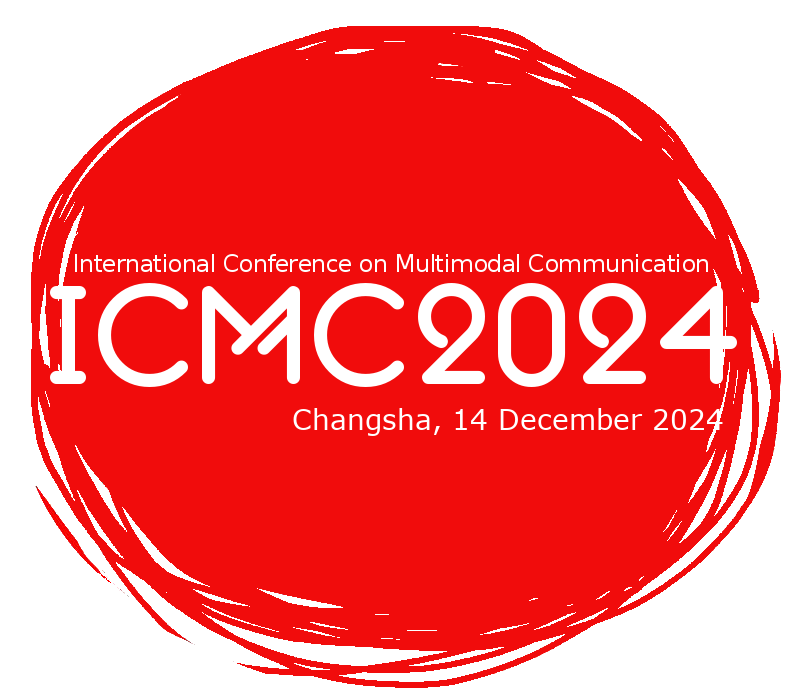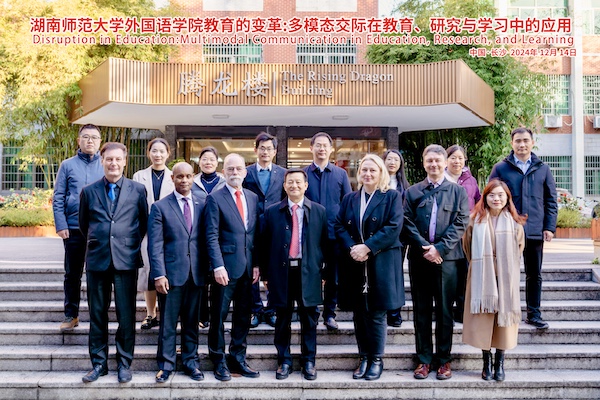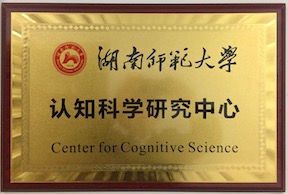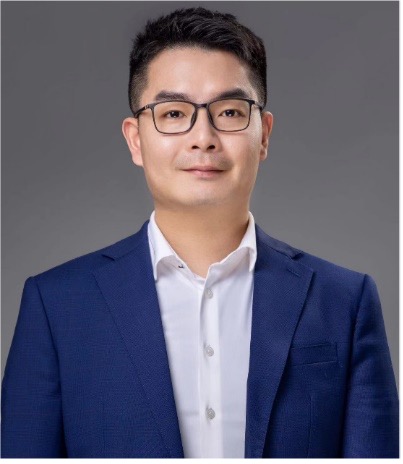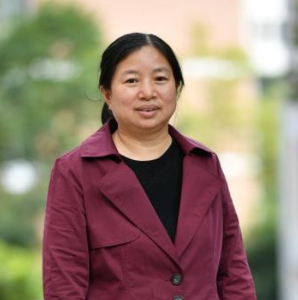| Navigation |
|---|
| Overview |
| Center for Cognitive Science Home |
|
ICMC2024: 2024 International Conference on Multimodal Communication:
Saturday & Sunday, 14-15 December 2024, Changsha |
There is also a workshop: Disruption in Practice
Location: Room 611, Zhonghe Building, which is next to the College of Foreign Studies.
Workshop ZOOM ID: 992 9292 8048; Password: 134804
Plenary speakers will hold an open and wide-ranging discussion about actual changes taking place in
Education, Learning, and Research in specific universities and cities.
Members of the audience are invited to join the conversation and give additional reports.
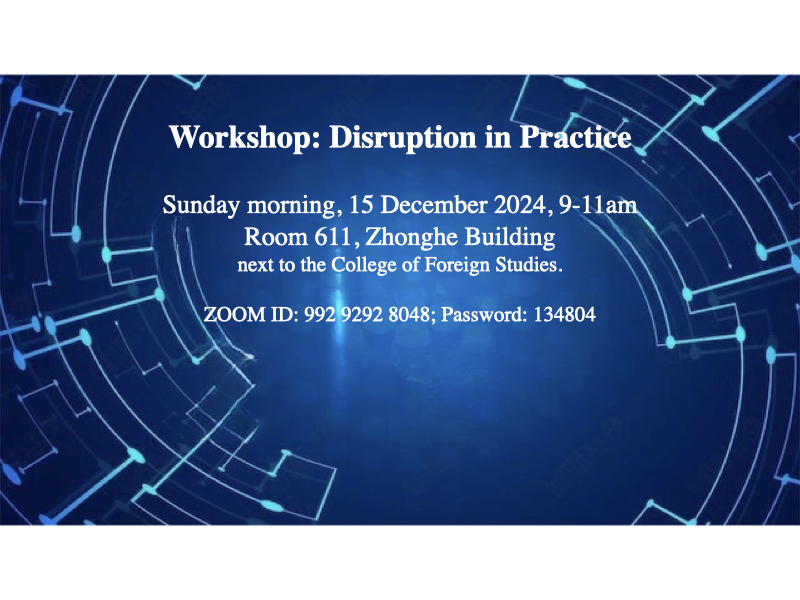
Conference: Saturday, 14 December 2024.
Plenary Speakers
- 8:30-9:00 China Standard Time.
Moderator: JIANG Lihua (Sat, 14 Dec 2024 at 00:30 UTC;
Fri, 13 Dec 2024 at 19:30 EST;
Sat, 14 Dec 2024 at 01:30 CET;
Sat, 14 Dec 2024 at 00:30 GMT;
Fri, 13 Dec 2024 at 16:30 PST.)
- Group Photo at Tenglong Building
-
Introduction by Professor JIANG Hongxin, Chair of the University Council
-
Introduction to the Theme of ICMC2024 by
Mark Turner
- 9:00–9:45 China Standard Time.
Moderator: WAN Guangrong
Michael Schoop.
Senior Vice-President, Talent, Greater Cleveland Partnership. Previously Vice-President, Cuyahoga Community College, President of the Metro Campus of Cuyahoga Community College.
Title: Disruption and Realignment in U.S. Higher Education in the New World of Work
- 9:45-10:30 China Standard Time.
(Fri, Dec 13, 2024 at 8:45 pm EST;
Fri, Dec 13, 2024 at 10:45 pm BRT;
Sat, Dec 14, 2024 at 1:45 am UTC.)
Moderator: WAN Guangrong
Tiago Torrent.
Professor of the Graduate Program in Linguistics and the head of the FrameNet Brasil Lab at Federal University of Juiz de Fora, Brazil. Research Productivity Grantee of the Brazilian National Research Council for Scientific and Technological Development.
Professor of the Graduate Program in Linguistics, Federal University of Juiz de Fora, Brazil.
Title: Reframing Education in the Age of Copilots: multimodal language capacities for an ever-changing AI-oriented world
- 10:30-10:40 China Standard Time. Coffee & tea break.
- 10:40-11:25 China Standard Time.
Moderator: TANG Yanling
CHEN Fei
Professor, School of Foreign Languages, Hunan University.
Title:
The Influence of Audiovisual Cross-Modal Integration on Speech Perception and its Implications for Speech Training
- 11:25-12:10 China Standard Time.
Moderator: TANG Yanling
Renata Geld.
Founding Director, Center for Cognitive Science, Associate Professor, Co-head MA in AppCogSci, cognitive science, cognitive linguistics, language education, interdisciplinarity in HE, creativity and creative ecosystems.
Title: Learning as an inherently multimodal process: cognitive science of education
- Lunch Break 12:10-13:45 China Standard Time
- 13:45-14:00 China Standard Time.
(Sat, 14 Dec 2024 at 05:45 UTC;
Sat, 14 Dec 2024 at 00:45 EST;
Sat, 14 Dec 2024 at 06:45 CET;
Sat, 14 Dec 2024 at 05:45 GMT;
Fri, 13 Dec 2024 at 21:45 PST.)
Moderator: CHEN Minzhe
Mark Turner.
Institute Professor and Professor of Cognitive Science, Case Western Reserve University. Co-director, the International Distributed Little Red Hen Lab.
Title:
Collaborating with Synthetic Agents
- 14:00-14:30 China Standard Time.
Moderator: CHEN Minzhe
Martin Woesler
"Xiaoxiang Scholar" Distinguished Professor and Director of the Jean Monnet Research Centre of Excellence on the Digitalization of University Teaching, Foreign Studies College, Hunan Normal University. Research fields include use of ai in foreign language acquisition, cognitive load theory, appropriateness theory, comparison of ai/human teachers, field work to identify the role of different modals/senses, e.g. by field work with learners with disabilities.
Title:
Multimodal Learning from the perspective of the cognitive load theory in the age of AI
- 14:30-15:15 China Standard Time.
Moderator: CHEN Minzhe
DENG Yunhua
Professor, Foreign Studies College of Hunan Normal University. Head of the linguistics team in the English department.
Title:
Application of Large Language Models in Language Research
- 15:15-15:25 China Standard Time. Coffee & tea break.
- 15:25-16:10 China Standard Time.
Moderator: TAN Xiaojuan
Mateusz-Milan Stanojević.
Full Professor at University of Zagreb, Faculty of Humanities and Social Sciences
Title:
Multimodal Communication in Learning, Teaching, and Research through the Cognitive Linguistic Lens: Understanding the Disruption
- 16:10-16:55 China Standard Time.
Moderator: ZHANG Ying
YANG Yuxiao
Associate Professor and Director of the Linguistics Faculty, Foreign Studies College, Hunan Normal University.
Title:
The Application of Multi-modal Approaches in L2 Speech Learning in the Age of AI
- 16:55-17:10 China Standard Time.
Moderator: WANG Yuqing
Concluding remarks. Mark Turner. Case Western Reserve University.
- Group Photo at Tenglong Building
- Introduction by Professor JIANG Hongxin, Chair of the University Council
- Introduction to the Theme of ICMC2024 by Mark Turner
Michael Schoop. Senior Vice-President, Talent, Greater Cleveland Partnership. Previously Vice-President, Cuyahoga Community College, President of the Metro Campus of Cuyahoga Community College.
Title: Disruption and Realignment in U.S. Higher Education in the New World of Work
Tiago Torrent. Professor of the Graduate Program in Linguistics and the head of the FrameNet Brasil Lab at Federal University of Juiz de Fora, Brazil. Research Productivity Grantee of the Brazilian National Research Council for Scientific and Technological Development. Professor of the Graduate Program in Linguistics, Federal University of Juiz de Fora, Brazil.
Title: Reframing Education in the Age of Copilots: multimodal language capacities for an ever-changing AI-oriented world
CHEN Fei Professor, School of Foreign Languages, Hunan University.
Title: The Influence of Audiovisual Cross-Modal Integration on Speech Perception and its Implications for Speech Training
Renata Geld. Founding Director, Center for Cognitive Science, Associate Professor, Co-head MA in AppCogSci, cognitive science, cognitive linguistics, language education, interdisciplinarity in HE, creativity and creative ecosystems.
Title: Learning as an inherently multimodal process: cognitive science of education
Mark Turner. Institute Professor and Professor of Cognitive Science, Case Western Reserve University. Co-director, the International Distributed Little Red Hen Lab.
Title: Collaborating with Synthetic Agents
Martin Woesler "Xiaoxiang Scholar" Distinguished Professor and Director of the Jean Monnet Research Centre of Excellence on the Digitalization of University Teaching, Foreign Studies College, Hunan Normal University. Research fields include use of ai in foreign language acquisition, cognitive load theory, appropriateness theory, comparison of ai/human teachers, field work to identify the role of different modals/senses, e.g. by field work with learners with disabilities.
Title: Multimodal Learning from the perspective of the cognitive load theory in the age of AI
DENG Yunhua Professor, Foreign Studies College of Hunan Normal University. Head of the linguistics team in the English department.
Title: Application of Large Language Models in Language Research
Mateusz-Milan Stanojević. Full Professor at University of Zagreb, Faculty of Humanities and Social Sciences
Title: Multimodal Communication in Learning, Teaching, and Research through the Cognitive Linguistic Lens: Understanding the Disruption
YANG Yuxiao Associate Professor and Director of the Linguistics Faculty, Foreign Studies College, Hunan Normal University.
Title: The Application of Multi-modal Approaches in L2 Speech Learning in the Age of AI
Concluding remarks. Mark Turner. Case Western Reserve University.
